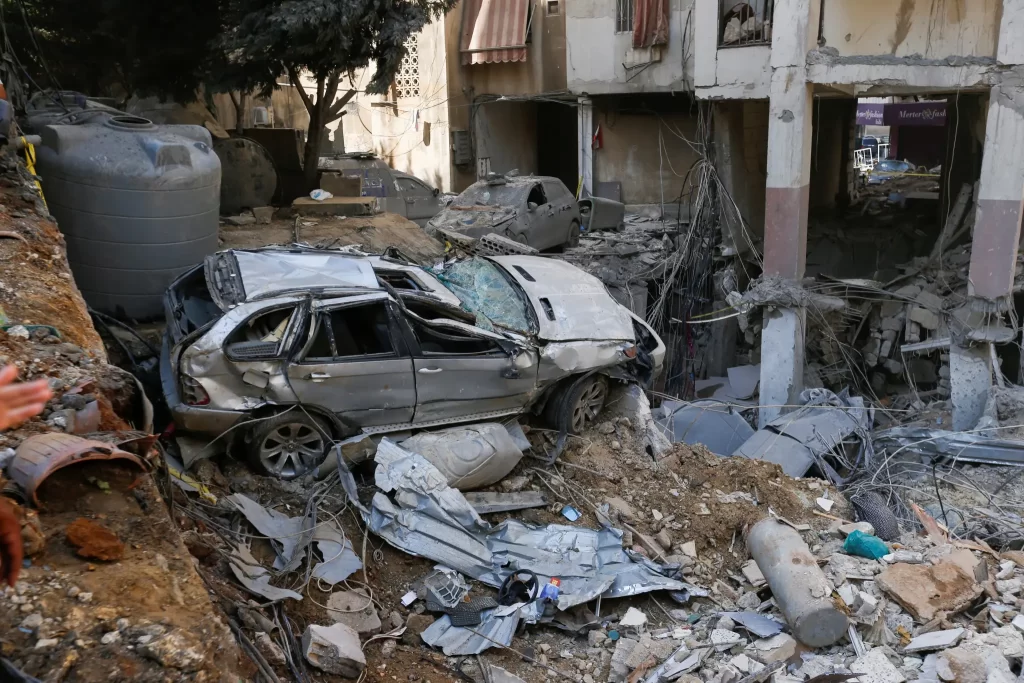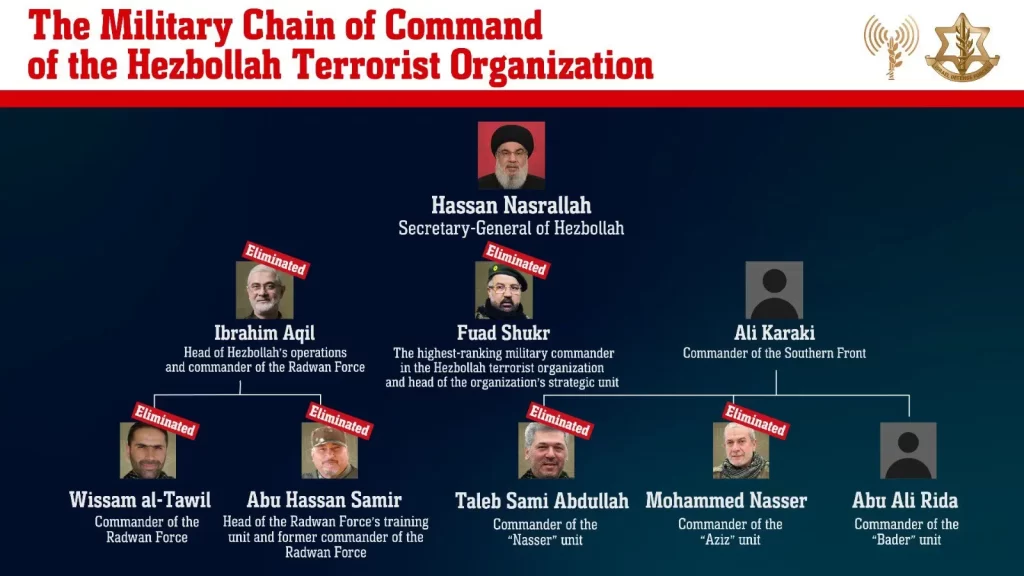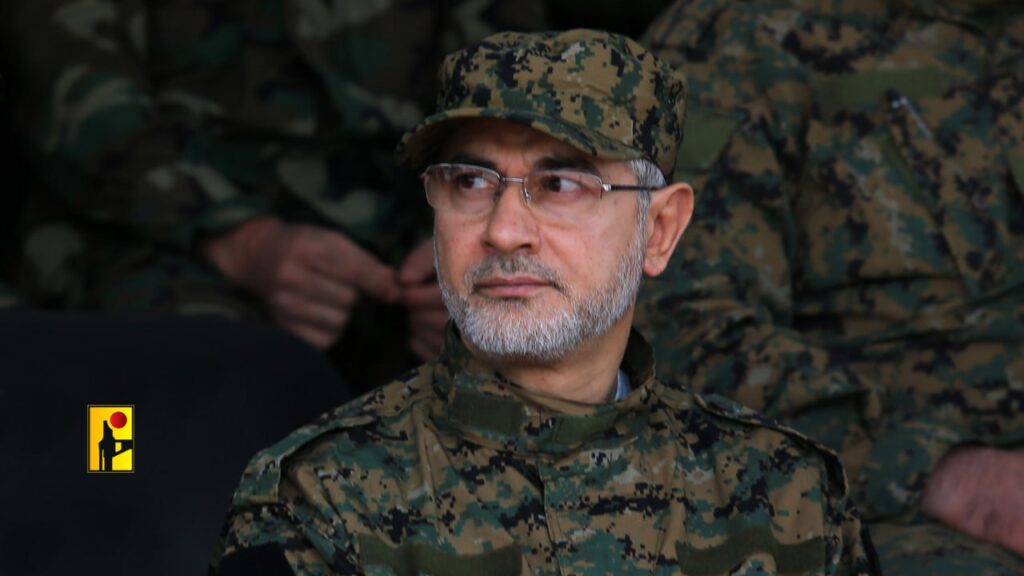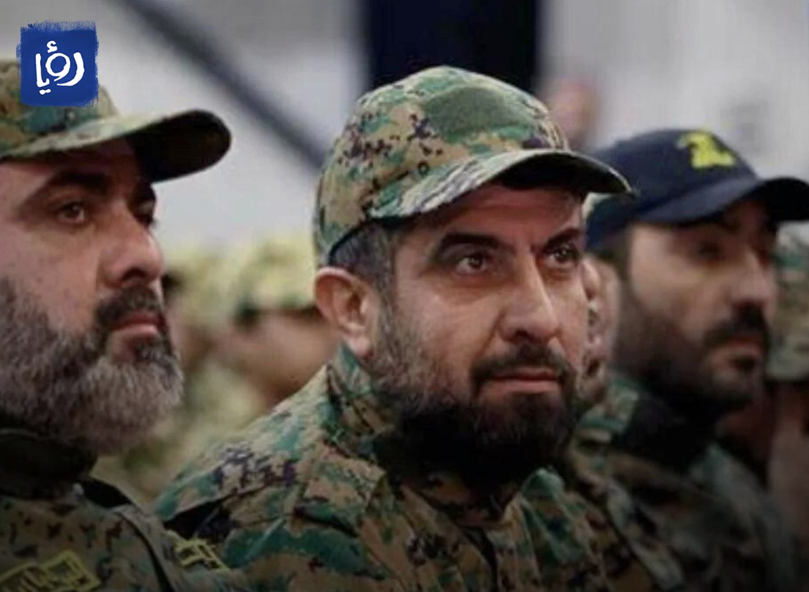Senior Hezbollah leaders killed in an Israel Defense Forces (IDF) airstrike on Friday were reportedly meeting to plan an Oct. 7-style ground invasion of northern Israel, according to officials and sources close to the Iran-backed terror group.

The airstrike, which targeted a high-rise apartment building in the Dahiya area of southern Beirut, killed 16 senior commanders and operatives of Hezbollah’s elite Radwan Force, the IDF said. Among those killed were top leaders Ibrahim Aqil and Ahmed Wahbi.
IDF spokesperson Rear Adm. Daniel Hagari stated, “Aqil and the Radwan Force commanders who we attacked are the commanders who drew up and led the Hezbollah terror group’s plan, to be carried out on the day the order was given, to attack into the northern territory of the State of Israel, what they called ‘The plan to conquer the Galilee.'”

A Hezbollah source told Al-Monitor, a Middle East news outlet, that the group was studying “plans for a ground invasion at the heart of the occupied territories” in northern Israel.
Israeli President Isaac Herzog reiterated these claims during a Sky News broadcast on Sunday, condemning Iran and its proxies. “All of these leaders came together in order to launch the same horrific, horrendous attack that we had on Oct. 7 by Hamas, by burning Israelis, by butchering them, raping their women, abducting and taking hostage people and little babies,” Herzog said.

The airstrike, which Lebanese health officials say left a total of 37 people dead, prompted Hezbollah to fire more than 100 rockets over the border early Sunday. One missile hit a residential building in Kiryat Bialik, wounding at least three people and sending thousands across northern Israel scrambling for shelters.
Israel retaliated with its own rocket barrage, killing at least three people and wounding four others near the Lebanon-Israel border, according to Lebanon’s health ministry.
The conflict between Israel and Hezbollah has intensified following attacks last week that detonated thousands of pagers, radios, and other electronic devices used by members of the terror group. Sources told Axios that these attacks were an attempt to reach “de-escalation through escalation” by destabilizing Hezbollah’s leadership and fighters.

While the United States supports Israel’s right to self-defense, White House National Security spokesman John Kirby told ABC’s “This Week” that it is not in Israel’s “best interest” to force a military escalation. “The tensions are much higher now than they were even just a few days ago,” Kirby said. “We still believe that there can be time and space for a diplomatic solution here and that’s what we’re working on.”
Kirby added, “We’ve been working since the beginning of this conflict, October 8th and on, to try to prevent an escalation, to prevent a broadening of this conflict there in and around Israel, but also in the region.”
The escalating tensions between Israel and Hezbollah have raised concerns about a potential wider conflict in the Middle East. The situation remains volatile as both sides continue to exchange fire and international diplomats work to prevent further escalation.
The alleged plans for an invasion of northern Israel by Hezbollah, if confirmed, would represent a significant escalation in the group’s tactics and ambitions. Such a move would likely draw a severe response from Israel and could potentially involve other regional actors, further destabilizing an already tense situation in the Middle East.
nypost.com



